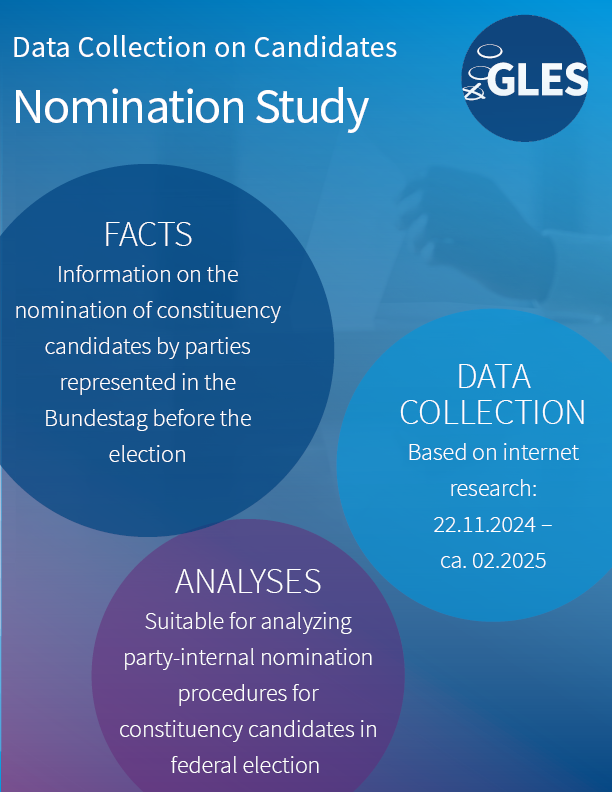
German Longitudinal Election Study (GLES)
@gles_data
High-quality data for election research | Cooperation between the German Society for Electoral Studies (DGfW) and @gesis_org
bsky.app/profile/gles.b…
ID: 1392055979576070149
http://www.gesis.org/en/gles 11-05-2021 09:58:31
286 Tweet
1,1K Followers
157 Following




📊 New Publication: GLES Candidate Study 2021 Methods Report! 🎉 @joschbrl, Joshua E. S. Rodrigues, and @axburg1 dive into the processes behind candidate data collection, data curation, and data quality for the 2021 German federal election.🔍📋 ➡️ doi.org/10.21241/ssoar…



🚨 Wave 28 of the GLES Panel is live! 🚨 🗓️ Dec. 11 – 22 📊 More than 13,000 interviews with active and newly recruited panel members of samples A1-A4 + A5 📝 Explore the questionnaire (DE, EN): gesis.org/en/gles/2025-f… German Longitudinal Election Study (GLES) #Wahl2025 #SurveyResearch #PolSci







